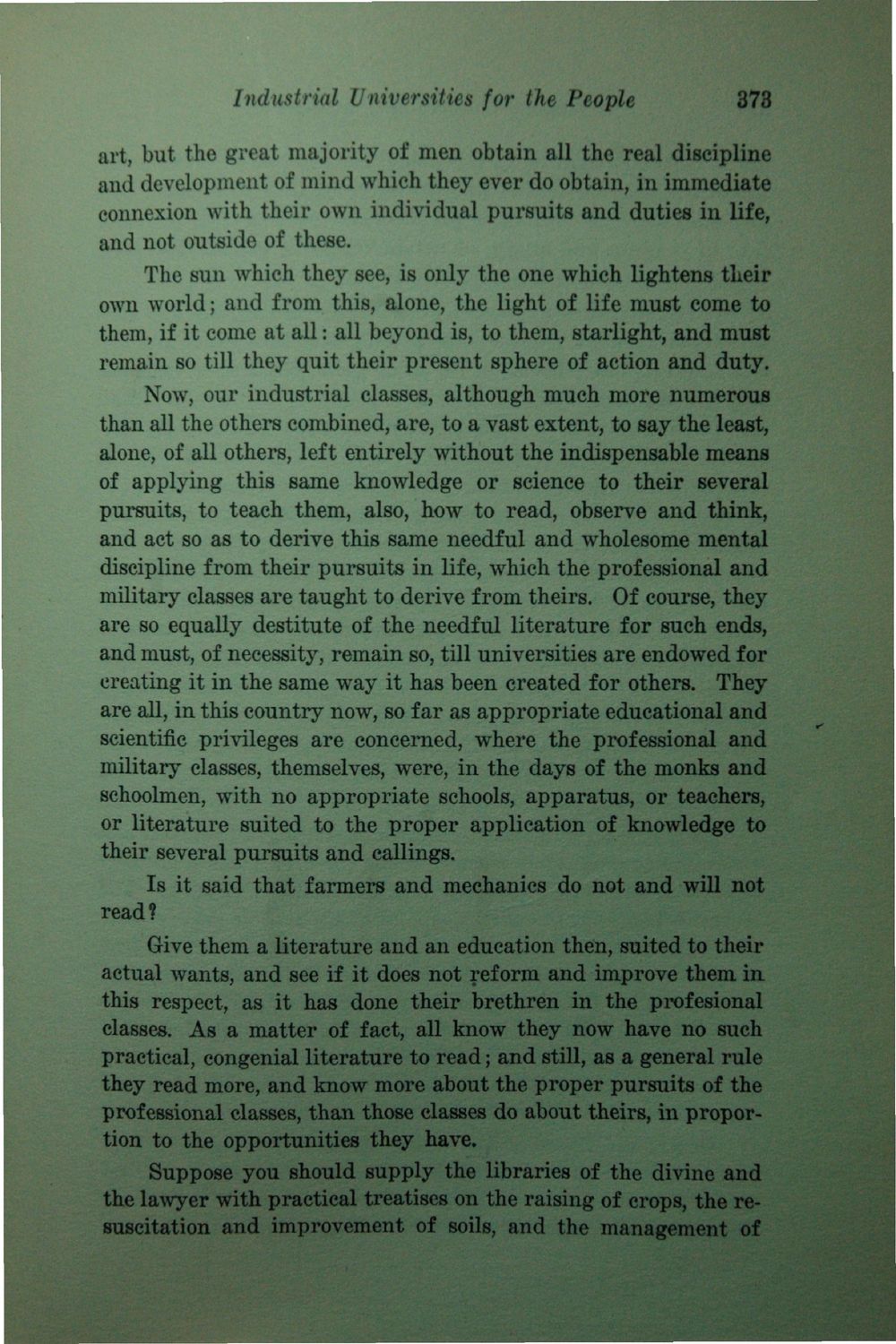| |
| |
Caption: Book - History of the University (Powell)
This is a reduced-resolution page image for fast online browsing.

EXTRACTED TEXT FROM PAGE:
Industrial Universities for the People 878 art, but the great majority of men obtain all the real discipline and development of mind which they ever do obtain, in immediate connexion with their own individual pursuits and duties in life, and not outside of these. The sun which they see, is only the one which lightens their own world; and from this, alone, the light of life must come to them, if it come at all: all beyond is, to them, starlight, and must remain so till they quit their present sphere of action and duty. Now, our industrial classes, although much more numerous than all the others combined, are, to a vast extent, to say the least, alone, of all others, left entirely without the indispensable means of applying this same knowledge or science to their several pursuits, to teach them, also, how to read, observe and think, and act so as to derive this same needful and wholesome mental discipline from their pursuits in life, which the professional and military classes are taught to derive from theirs. Of course, they are so equally destitute of the needful literature for such ends, and must, of necessity, remain so, till universities are endowed for creating it in the same way it has been created for others. They are all, in this country now, so far as appropriate educational and scientific privileges are concerned, where the professional and military classes, themselves, were, in the days of the monks and schoolmen, with no appropriate schools, apparatus, or teachers, or literature suited to the proper application of knowledge to their several pursuits and callings. Is it said that farmers and mechanics do not and will not read? Give them a literature and an education then, suited to their actual wants, and see if it does not reform and improve them in. this respect, as it has done their brethren in the profesional classes. As a matter of fact, all know they now have no such practical, congenial literature to read; and still, as a general rule they read more, and know more about the proper pursuits of the professional classes, than those classes do about theirs, in proportion to the opportunities they have. Suppose you should supply the libraries of the divine and the lawyer with practical treatises on the raising of crops, the resuscitation and improvement of soils, and the management of
| |